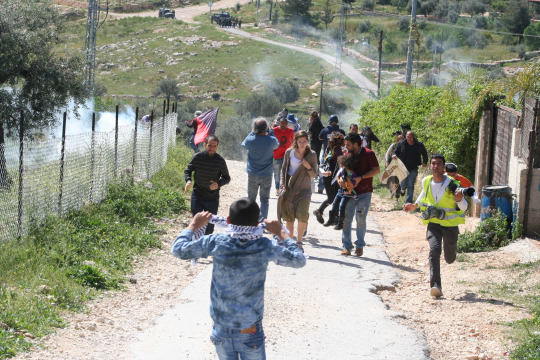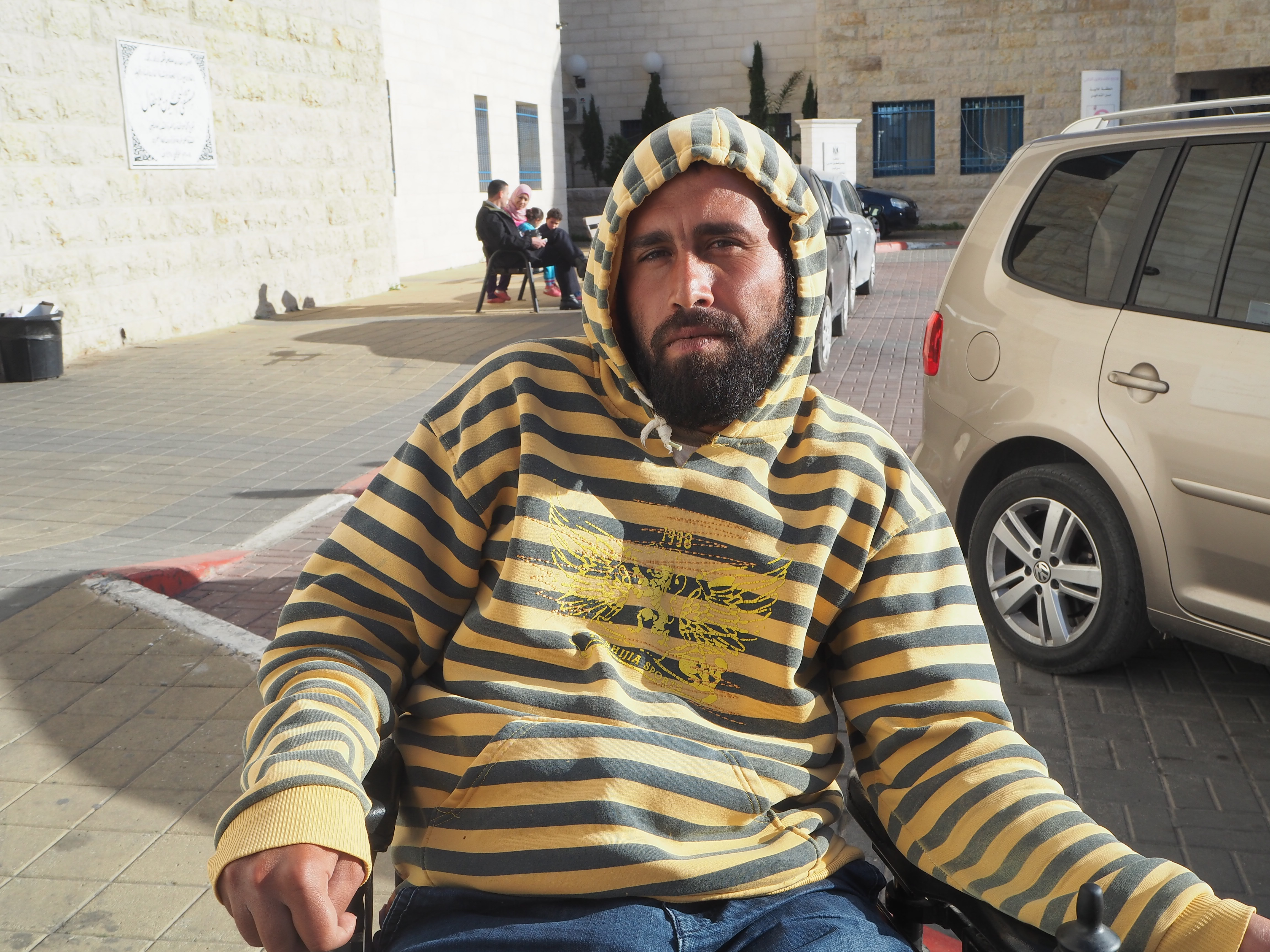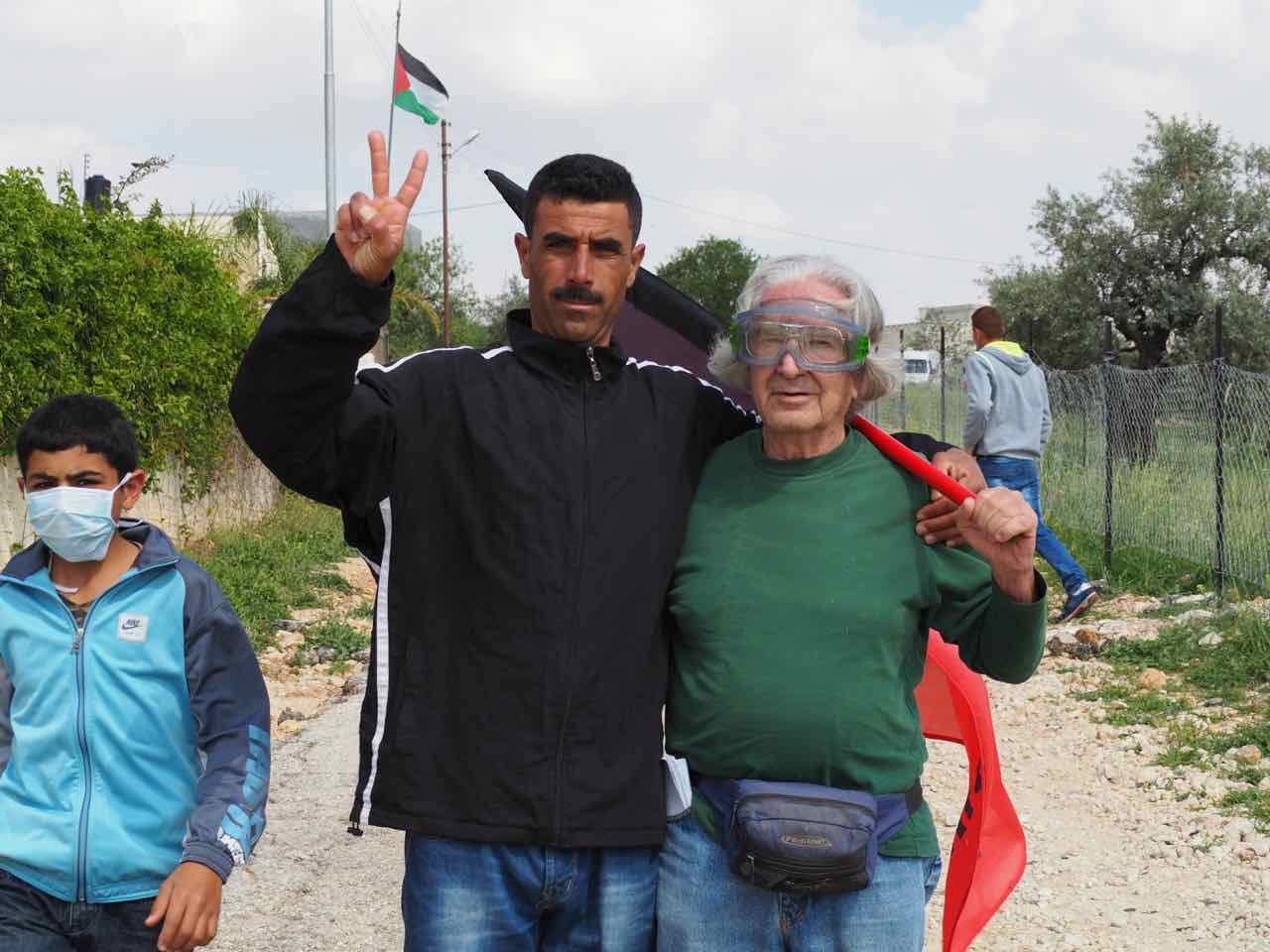Tag: Bil’in
-
A new ISM’ers personal experience on Bil’in and tear gas
15th March 2016 | International Solidarity Movement, al-Khalil team | Hebron, occupied Palestine Miguel and Kolla came this morning from the al-Khalil team (several years ago it feels) and we went to Bil’in as planned for my first demonstration. The easiest thing to do is simply to describe it: We waited a while for people…
-
Rani Burnat from Bil’in
15th March 2016 | International Solidarity Movement, al-Khalil team | Bil’in, occupied Palestine Rani Burnat is an extraordinary human being in more ways than one. He was left paralysed from an injury sustained during the second intifada, learned to live the remainder of his life in a wheelchair, fathered three children (triplets) and now continues…
-
Peaceful demonstrators tear gassed by Israeli army at Bil’in
4th March 2016| International Solidarity Movement, Al-Khalil team | Bil’in, occupied Palestine Today, groups of Palestinians, Israelis and other activists from around the world marched together in solidarity to oppose the zionist regimes annexation wall and illegal settlement of Modin Ilit. The settlement has been built on part of the once Palestinian land from the…



